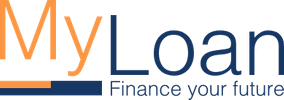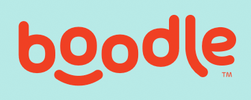Health Care Loans
In order to find the best loan for your needs, it is important to compare loans online.
- Apply in minutes
- Get offers from multiple lenders
- Choose the best loan option available
Note: If you are not satisfied with the loan offers, you don’t have to select any of them.
Applying for a loan online – How it works
1. Select loan amount
In the calculator, select the loan amount you need.
The minimum amount is R 500 and the maximum amount is R 250 000.
2. Fill out contact details
Fill out your email address and your cellphone number.
Keep in mind that you will receive the loan offers through these channels.
3. Fill in additional details
The applications are often processed automatically. To achieve this, banks and lenders need some additional details, like your employment status and monthly income.
4. Select the best loan offer
Compare the offers & select the best one! If you are not satisfied with the offers, you don't have to do anything. The application expires automatically.
Health Care Loans in South Africa
As the cost of healthcare continues to rise in South Africa, many individuals are finding it increasingly difficult to afford the medical treatment they need. Whether it’s for emergency surgery, ongoing medical expenses, or any other healthcare-related costs, the financial burden can be overwhelming. That’s where health care loans come in. By providing a way to pay for medical expenses over time, these loans can make it possible for people to access the care they need without having to worry about the upfront costs. But with so many lenders and loan options available, it can be challenging to know where to start. That’s why we’re here to help. In this article, we’ll compare the lowest loan rates for health care loans in South Africa, so you can find the best option for your needs and budget.
Why do you need health care loans in South Africa?
The cost of healthcare in South Africa has been increasing rapidly over the years. According to a report by the South African Institute of Race Relations, the cost of healthcare has increased by an average of 7.5% per year over the past decade. This means that many people are struggling to afford the medical care they need, especially those who are not covered by medical aid schemes. Health care loans provide a solution for those who need medical treatment but cannot afford it upfront.
Health care loans can cover a wide range of medical expenses, including hospitalization, surgery, medication, and medical equipment. These loans are especially useful for people who need emergency medical treatment or who have chronic medical conditions that require ongoing care. With a health care loan, you can pay for these expenses over time, making it easier to manage your finances while still getting the care you need.
However, it’s important to note that health care loans should only be used for necessary medical expenses. Taking out a loan for non-essential medical treatments or cosmetic procedures is not recommended, as it can lead to unnecessary debt.
Types of health care loans available
There are several types of health care loans available in South Africa. The most common types are personal loans, medical loans, and credit card loans.
Personal loans are unsecured loans that can be used for any purpose, including medical expenses. They are typically offered by banks and other financial institutions and have fixed interest rates and repayment terms.
Medical loans are specifically designed for medical expenses and are offered by some medical providers, such as hospitals and clinics. These loans may have lower interest rates than personal loans and may offer more flexible repayment terms.
Credit card loans allow you to use your credit card to pay for medical expenses. This can be a convenient option if you already have a credit card with a high credit limit. However, credit card loans often have high interest rates and can lead to long-term debt if not managed properly.
Factors to consider before applying for a health care loan
Before applying for a health care loan, there are several factors you should consider. These include your credit score, the interest rate and repayment terms of the loan, and any fees or charges associated with the loan.
Your credit score is an important factor in determining whether you will be approved for a loan and what interest rate you will be offered. If you have a high credit score, you may be eligible for lower interest rates and better repayment terms. If your credit score is low, you may be offered higher interest rates and less favorable repayment terms.
The interest rate and repayment terms of the loan are also important factors to consider. A loan with a lower interest rate and longer repayment term may be more affordable in the long run, but it may also mean paying more in interest over time. A loan with a higher interest rate and shorter repayment term may be more expensive upfront, but it may also mean paying less in interest over time.
Finally, it’s important to consider any fees or charges associated with the loan, such as origination fees, late payment fees, or prepayment penalties. These fees can add up quickly and make the loan more expensive than it initially appears.
How to compare health care loan rates in South Africa
When comparing health care loan rates in South Africa, there are several factors to consider. These include the interest rate, repayment terms, fees and charges, and the reputation of the lender.
The interest rate is one of the most important factors to consider when comparing loan rates. A lower interest rate means that you will pay less in interest over time, which can save you money in the long run. However, it’s important to remember that a low interest rate may not always be the best option, as there may be other fees or charges associated with the loan.
Repayment terms are also important to consider when comparing loan rates. A longer repayment term may mean lower monthly payments, but it may also mean paying more in interest over time. A shorter repayment term may mean higher monthly payments, but it may also mean paying less in interest over time.
Fees and charges can also add up quickly and make a loan more expensive than it initially appears. It’s important to read the fine print and understand all fees and charges associated with the loan before signing any agreements.
Finally, the reputation of the lender is an important factor to consider. It’s important to choose a reputable lender with a history of providing high-quality loans and excellent customer service.
Where to find the lowest health care loan rates
There are several places to find the lowest health care loan rates in South Africa. Banks and other financial institutions are a good place to start, as they often offer competitive interest rates and flexible repayment terms. However, it’s important to shop around and compare rates from multiple lenders before making a decision.
Online loan comparison websites are also a great resource for finding the lowest loan rates. These websites allow you to compare rates from multiple lenders and can help you find the best option for your needs and budget.
Finally, some medical providers, such as hospitals and clinics, may offer their own medical loan programs with competitive interest rates and flexible repayment terms. It’s worth checking with your medical provider to see if they offer any financing options.
How to apply for a health care loan
The application process for a health care loan will vary depending on the lender. In general, you will need to provide personal and financial information, such as your income, employment history, and credit score.
You may also need to provide information about the medical treatment you need, including the cost of the treatment and any other medical expenses you may have.
Once you have provided all necessary information, the lender will review your application and make a decision on whether to approve the loan. If approved, the lender will provide you with the loan amount and repayment terms.
Benefits of taking a health care loan
There are several benefits to taking a health care loan. First and foremost, it allows you to access the medical treatment you need without having to worry about the upfront costs. This can be especially helpful for emergency medical treatment or ongoing medical expenses.
Health care loans also provide a way to manage your finances over time, as you can pay for medical expenses in installments rather than all at once. This can make it easier to budget and manage your finances while still getting the care you need.
Finally, health care loans can be a more affordable option than using a credit card or other high-interest loan. By choosing a loan with a low interest rate and favorable repayment terms, you can save money in the long run.
Risks of taking a health care loan
While there are many benefits to taking a health care loan, there are also some risks to consider. The most significant risk is that you may end up paying more in interest over time than you would have if you had paid for the medical treatment upfront.
There is also a risk of defaulting on the loan if you are unable to make the monthly payments. This can lead to additional fees and charges, as well as damage to your credit score.
Finally, taking out a health care loan may lead to unnecessary debt if the medical treatment is not necessary or if you are taking out the loan for non-essential medical treatments or cosmetic procedures.
Conclusion and final thoughts
Health care loans can be a helpful solution for those who need medical treatment but cannot afford it upfront. By providing a way to pay for medical expenses over time, these loans can make it possible for people to access the care they need without having to worry about the financial burden.
When comparing health care loan rates in South Africa, it’s important to consider factors such as the interest rate, repayment terms, fees and charges, and the reputation of the lender. By shopping around and comparing rates from multiple lenders, you can find the best option for your needs and budget.
However, it’s important to remember that health care loans should only be used for necessary medical expenses. Taking out a loan for non-essential medical treatments or cosmetic procedures is not recommended, as it can lead to unnecessary debt.
You might also be interested in:
R5400
R250000
R8000
R8000
R8000




